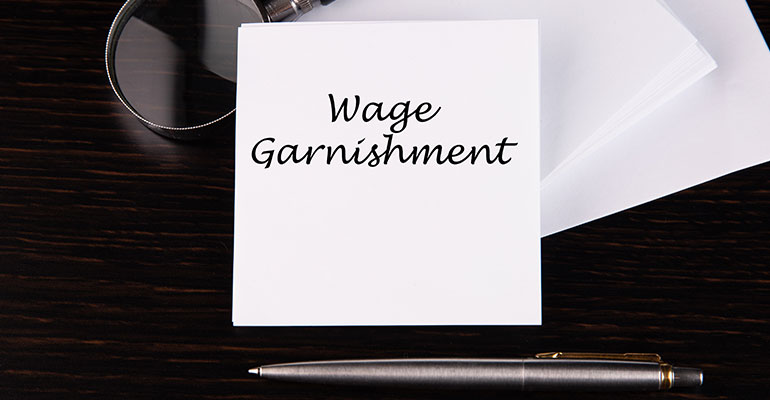
Wage garnishment is a legal process that allows a creditor to collect a debt by withholding a portion of your wages until the debt is paid off. If you are facing wage garnishment, it is important to understand your rights and options. Here are some key things you need to know about wage garnishment.
What Is Wage Garnishment?
A court may order your employer to cease a part of your pay and send it directly to a creditor to settle a debt through a process known as wage garnishment. Depending on the state and the type of debt, different amounts can be garnished, but generally, creditors can take up to 25% of your disposable income.
What Types of Debt Can Be Garnished?
A variety of debts, such as unpaid taxes, student loans, child support, and court-ordered judgments, may be collected through wage garnishment. If they are able to obtain a court order, creditors may occasionally also be able to garnish your wages for other debts, such as credit card debt or medical expenses.
How Does Wage Garnishment Work?
If a creditor obtains a court order for wage garnishment, they will send the order to your employer, who will be required to cease a part of your wages and send them directly to the creditor until the debt is paid off. Your employer is required by law to comply with the order, and failure to do so can result in legal penalties.
Can You Stop Wage Garnishment?
There are several options available if you are facing wage garnishment. One option is to negotiate a payment plan with the creditor to pay off the debt over time. Another option is to file for bankruptcy, which can stop wage garnishment and eliminate certain types of debts. You can also contest the garnishment if you believe it is invalid or if you have been garnished for more than the maximum amount allowed by law.
How Can You Avoid Wage Garnishment?
The best way to avoid wage garnishment is to address debts as soon as possible. If you are unable to make payments, contact your creditors to discuss options, such as deferment, forbearance, or a payment plan. You can also seek the assistance of a credit counseling agency, which can help you negotiate with your creditors and develop a debt management plan.
What Are Your Rights during Wage Garnishment?
If you are facing wage garnishment, you have certain rights. For example, your employer cannot fire you or retaliate against you for having your wages garnished. You also have the right to receive a notice before the garnishment starts and to request a hearing to contest the garnishment. Additionally, you have the right to receive a statement each pay period that shows how much money was withheld and how much of the debt has been paid off.
What Happens If You Change Jobs?
Your new employer will be required to abide by the court order and withhold a portion of your wages if you change jobs while your wages are being garnished. It’s critical to let your new employer know about the garnishment so that the appropriate amount can be withheld.
How Long Can Wage Garnishment Last?
The length of time that wage garnishment can last depends on the type of debt and the state in which you live. In most cases, wage garnishment continues until the debt is paid off in full, but there may be certain limitations on the length of time that garnishment can continue.
How Can You Avoid Future Wage Garnishment?
The best way to avoid future wage garnishment is to address debts as soon as possible and work to improve your credit. This may involve developing a budget, reducing expenses, and increasing income. You can also seek the assistance of a financial advisor or credit counselor who can help you develop a plan to pay off your debts and improve your financial situation. They can also provide guidance on debt consolidation or debt settlement options that may be available to you.
How Can You Protect Your Assets from Wage Garnishment?
If you are facing wage garnishment, it is important to take steps to protect your assets. This may include transferring assets to a spouse or family member, creating a trust, or converting assets into exempt property. However, it is important to note that these actions may be viewed as fraudulent by creditors or the court and could result in legal consequences.
Wage garnishment is a serious legal process that can have a significant impact on your finances. If you are facing wage garnishment, it is important to understand your rights and options for addressing the debt. By working with creditors, seeking assistance from a financial advisor, credit counselor, or tax resolution/consultation services, and taking steps to protect your assets, you can improve your financial situation and avoid future wage garnishment.
